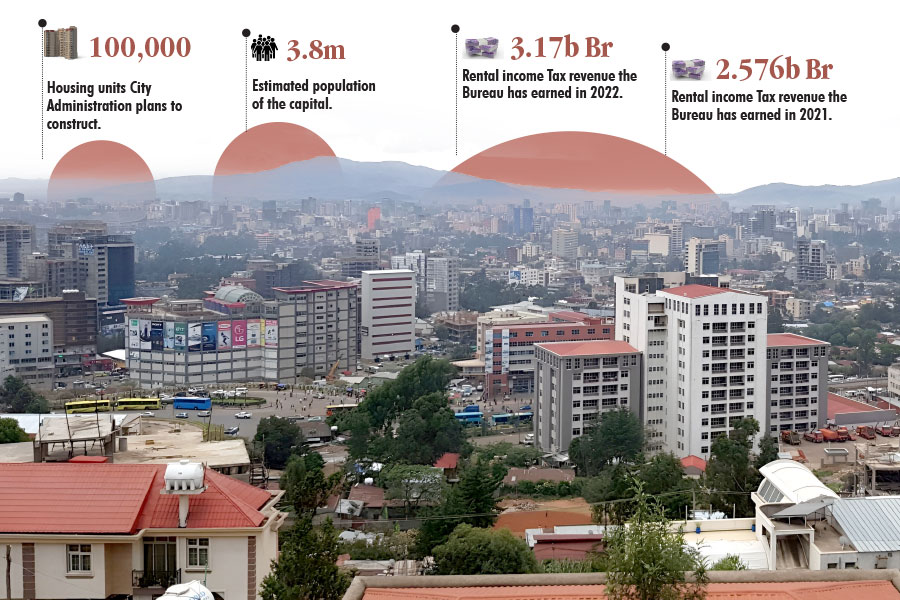
Apr 15 , 2023
By Bjorn Lomborg
Over the course of the 20th Century, tobacco smoking killed around 100 million people, most of whom lived in today’s rich countries. However, that picture is changing, and the health burdens of smoking are now moving from high-income to low- and middle-income countries.
Some estimates even suggest that one billion people could die from tobacco use over the 21st Century.
Investments in targeting health threats like tobacco, alcohol, and salt have largely, until now, been the preserve of wealthy countries. A much bigger focus has been on eradicating infectious diseases in poorer countries. However, as people live longer, non-communicable diseases are claiming more lives everywhere in the world while only receiving a fraction of health funding. In Ethiopia, more than 200,000 people die each year from chronic disease.
In poor countries, we should keep fighting illnesses like malaria, tuberculosis, and HIV/AIDS; but, we urgently need also to increase our focus on chronic disease risks like tobacco, alcohol, and salt intake.
We have promised to tackle chronic diseases by 2030, along with many other promises in the Sustainable Development Goals (SDG). Unfortunately, we are failing. On current trends, the world will be half a century late delivering on all its promises. The reason is clear: politicians decided to make an impossible 169 promises, indistinguishable from having none.
This year, the world will be at halftime for its 2030 promises, yet it will be nowhere near halfway. It is time to identify and prioritize the most crucial goals.
A new peer-reviewed study shows that tax and regulation policies to fight chronic diseases can deliver outstanding social benefits for relatively small investments, something most countries in-principle support.
There are two very effective ways to reduce the death toll from smoking. One is through a simple tobacco tax. The other is tobacco regulation, which can include bans on advertising and on smoking in public places.
Tobacco taxes make smoking costlier, meaning that more young people will never start, more smokers will stop or reduce their consumption, and fewer second-hand smoking deaths will occur. It also raises large and reliable funds for the government, something that many governments in the global South struggle to secure. We know from many real-world examples that higher taxes reduce tobacco consumption.
The direct cost of changing legislation is quite small.
Raising the tobacco tax across low- and lower-middle-income countries to four times the sales is estimated to cost 45 million dollars. Of course, it will also confer a relatively large loss to present-day smokers, worth almost half a billion dollars. The total cost up to 2030 would be a sizeable 462 million dollars. However, this policy would also significantly reduce smoking and thereby save more than 1.5 million lives.
In monetary terms, every dollar in cost would achieve a phenomenal social benefit worth 101 dollars. Similarly, tobacco regulations have very small administrative costs and larger smoker losses, but because they will likely save more than 300,000 lives, they deliver a spectacular benefit-cost ratio of 92.
Alcohol regulations are also a sound investment.
Alcohol kills 300,000 people annually in low-income countries and 1.6 million in lower-middle-income countries. It contributes to a large number of diseases and causes an additional 700,000 accidental deaths globally, as well as causing immense social damage. Tightening alcohol regulations can reduce harmful consumption and avert 150,000 deaths over the rest of the decade. Each dollar spent will deliver 76 dollars of social benefits. Alternatively, an alcohol tax can generate large, if slightly lower, benefits at 53 dollars back on the dollar.
Lowering unhealthy salt intake – like the United Kingdom, Finland and Poland have done – through regulations that gradually reduce the salt content in processed foods – is another sound investment. According to the WHO, we should consume a little less than one teaspoon of salt each day, but almost everywhere in the world, people consume much more. This leads to high blood pressure, heart disease and strokes. It causes almost two million deaths each year.
For the world’s poorer countries, enforcing salt regulations will be more expensive at over 400 million dollars. This approach could avoid almost half a million deaths, delivering 36 dollars of social benefits for each dollar spent.
We will not deliver on all the global promises for 2030 — that much was clear even when they were originally penned. However, the data now show that we will likely not deliver on any of the main goals because we have promised everything to everyone. It is time to focus our remaining efforts on the best investments. Our research shows that some of the best investments lie in regulating tobacco, alcohol, and salt, which can deliver outstanding benefits at a low cost.
PUBLISHED ON
Apr 15,2023 [ VOL
24 , NO
1198]


Fortune News | Nov 24,2024

Fortune News | Jul 06,2025

Radar | Oct 23,2023

Fortune News | Apr 03,2023

Fortune News | Apr 28,2024

My Opinion | 132151 Views | Aug 14,2021

My Opinion | 128561 Views | Aug 21,2021

My Opinion | 126482 Views | Sep 10,2021

My Opinion | 124091 Views | Aug 07,2021





Dec 22 , 2024 . By TIZITA SHEWAFERAW
Charged with transforming colossal state-owned enterprises into modern and competitiv...

Aug 18 , 2024 . By AKSAH ITALO
Although predictable Yonas Zerihun's job in the ride-hailing service is not immune to...

Jul 28 , 2024 . By TIZITA SHEWAFERAW
Unhabitual, perhaps too many, Samuel Gebreyohannes, 38, used to occasionally enjoy a couple of beers at breakfast. However, he recently swit...

Jul 13 , 2024 . By AKSAH ITALO
Investors who rely on tractors, trucks, and field vehicles for commuting, transporting commodities, and f...

Jul 12 , 2025
Political leaders and their policy advisors often promise great leaps forward, yet th...

Jul 5 , 2025
Six years ago, Ethiopia was the darling of international liberal commentators. A year...

Jun 28 , 2025
Meseret Damtie, the assertive auditor general, has never been shy about naming names...

Jun 21 , 2025
A well-worn adage says, “Budget is not destiny, but it is direction.” Examining t...

Jul 13 , 2025 . By YITBAREK GETACHEW
The Addis Abeba City Revenue Bureau has introduced a new directive set to reshape how...

Jul 13 , 2025 . By BEZAWIT HULUAGER
Addis Abeba has approved a record 350 billion Br budget for the 2025/26 fiscal year,...

Jul 13 , 2025 . By RUTH BERHANU
The Addis Abeba Revenue Bureau has scrapped a value-added tax (VAT) on unprocessed ve...

Jul 13 , 2025 . By NAHOM AYELE
Federal lawmakers have finally brought closure to a protracted and contentious tax de...